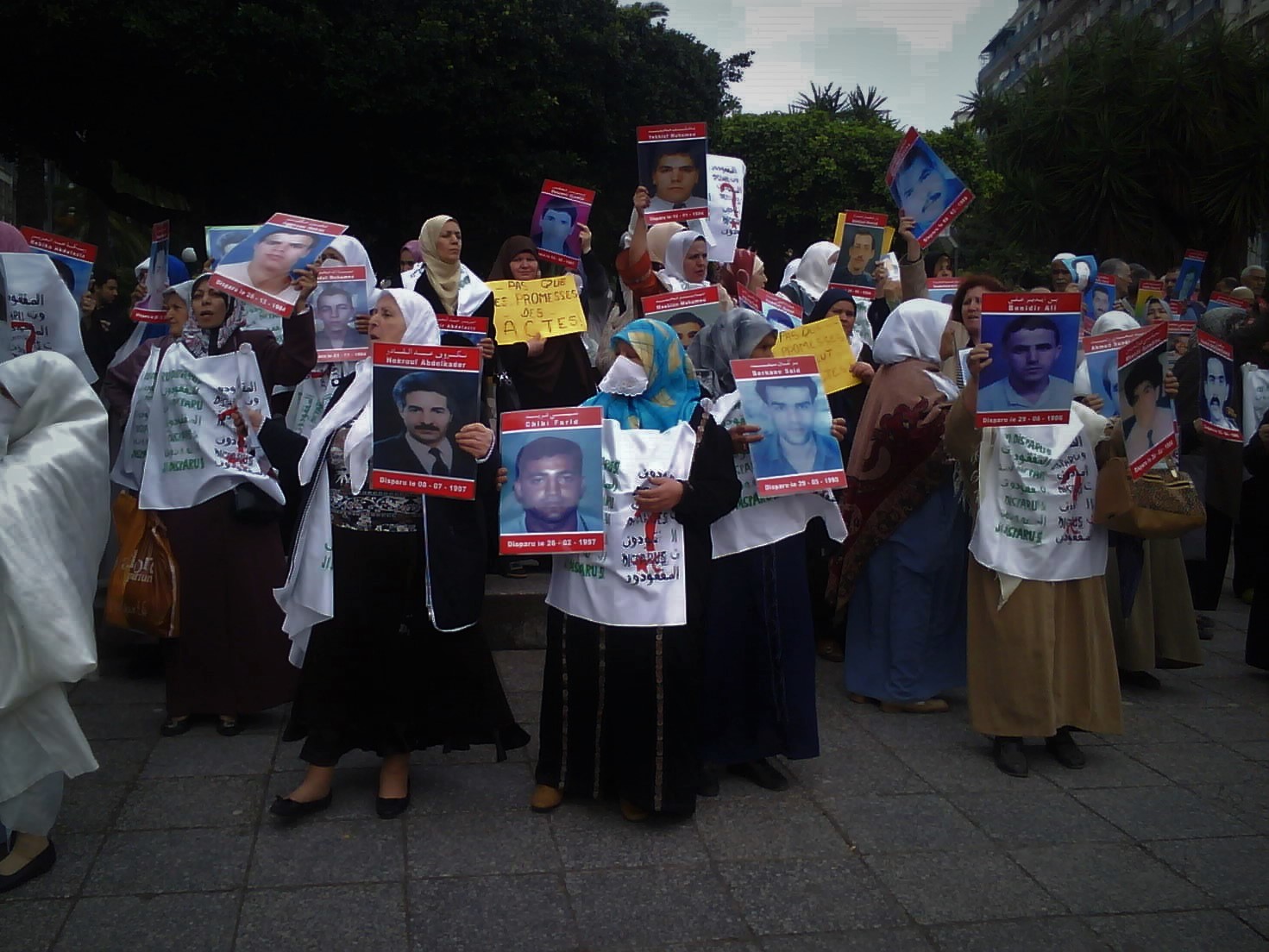August 30, 2020

Since former president Abdelaziz Bouteflika came to power in 1999, the authorities have not prosecuted and punished any perpetrator of enforced disappearances, nor have they taken any steps to uncover the truth about the thousands of missing persons who have been abducted over this period. When Abdelmadjid Tebboune was elected president in December 2019, associations of families of victims urged him to hold his promise to establish an “era of change.” To this day, the new administration has yet to break with the past and provide remedies to families.
The Algerian civil war
In 1992, Algeria was plunged into a civil war involving state security forces and various Islamist armed groups. The conflict left around 200,000 people dead and thousands of others injured and was marked by gross human rights violations committed by all parties involved in the hostilities. Most notably, the country experienced a widespread and systematic practice of enforced disappearances, the consequences of which are still being felt today.
Though most of the disappearances were reportedly practiced by state agents, armed groups have also been implicated in the abduction of civilians. The Algerian security services and state sponsored militias are responsible for the disappearance of 7,000 to 20,000 persons, according to estimates. The majority of the abductions took place between 1994 and 1995, at the time of the Algerian regime’s “war against terrorism.”
While the majority of victims were men, women bore the brunt of these disappearances, suddenly finding themselves at the forefront of the search for their loved ones, in an attempt to know the truth and obtain justice. Many of them played a crucial role in gathering data, protesting government inaction, and establishing associations of relatives.
A 20-year-long state denial
Since the end of the war in the early 2000s, the authorities have continued to deny the existence of a deliberate policy of enforced disappearances during the conflict, accrediting them to isolated incidents sporadically undertaken by officials acting on their own initiative. No investigations have been carried out and victims are still waiting for justice and reparations. This denial is embodied in the Ordinance No. 06-01 implementing the Charter on Peace and National Reconciliation adopted in 2006.
The Charter provides blanket amnesties for perpetrators of human rights violations, including enforced disappearance. As a result, victims cannot seek justice for their loved ones at the domestic level and cannot seek nor obtain any information from the government about the fate of missing persons. Following its enactment, families have had no other choice but to resort to international mechanisms in order to obtain justice.
Lack of cooperation with the UN Human Rights Committee
Since 2006, the UN Human Rights Committee adopted nearly 40 decisions which found Algeria in breach of multiple violations of its substantial and procedural obligations under the International Covenant on Civil and Political Rights (ICCPR). In each decision, the Committee urged Algeria to carry out effective investigations into the disappearances, release victims if they are still being held incommunicado, hold those responsible accountable, and provide adequate compensation to families.
Furthermore, in recent years, UN experts have asked Algeria to review or repeal the provisions of Ordinance No. 06-01, which they said undermines victims’ right to an effective remedy. To date, the authorities have refused to implement these recommendations, prompting the Committee to suspend its dialogue with the Algerian government.
About the ‘Enforced Disappearances in Africa’ Project
The Baseline study is part of a larger project coordinated by the UK-based NGO REDRESS on the issue of enforced disappearances across the African continent, in particular in Algeria, Libya, Sudan and Zimbabwe. The project is run by the African Centre for Justice and Peace Studies, Lawyers for Justice in Libya, MENA Rights Group, Zimbabwe Lawyers for Human Rights and REDRESS. It supports human rights lawyers and victims’ groups to bring cases challenging enforced disappearances. It empowers victims to speak about their own experiences, sets up victims’ networks and advocates for justice on their own behalf. It raises awareness about the problem with the relevant stakeholders at the domestic, regional and international levels.
Image: Courtesy of Moussa Bourefis






